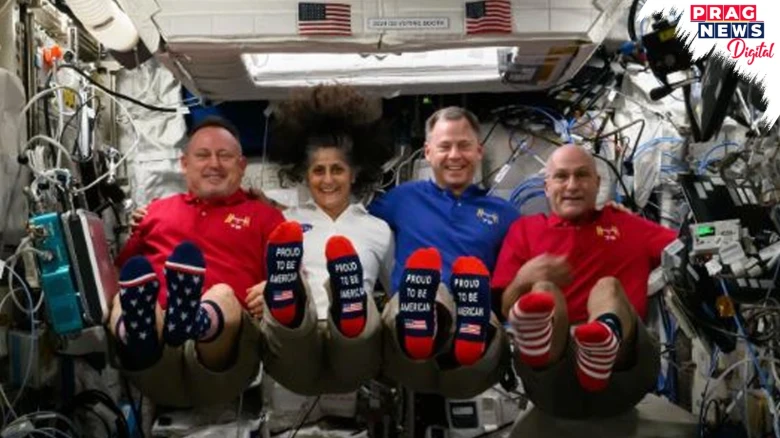Regional

Since 1997, American astronauts have been allowed to vote from space...
Digital Desk: On Election Day, astronauts Butch Wilmore, Sunita Williams, and Don Pettit shared an important moment from space - posting a photo of socks they wore that said "Proud to be American," courtesy of NASA astronaut Nick Hague. The image added importance to voting, not even from orbit.
These astronauts joined 1.2 million early voters of Harris County in Texas in participating in the U.S. presidential election. Thanks to the Near Space Network offered by NASA, the astronauts are allowed to send the votes safely from the International Space Station. There are satellites related to ground antennas that support sending their votes back home on Earth. Williams addressed the international space station through a news conference on 13 September saying she could not wait and was already committed more to voting.
Since 1997, American astronauts have been allowed to vote from space thanks to a Texas law allowing off-planet voters to cast ballots remotely on Election Day.
The first astronaut to do so was David Wolf from Russia's Mir Space Station. Others followed in his footsteps, including Leroy Chiao.
To vote from space, astronauts must first fill in a Federal Post Card Application. This initiates the absentee voting process, and they will soon receive an electronic ballot which has been transmitted safely through 1.2 million miles
from the ISS to NASA's Mission Control at Texas. The Tracking and Data Relay
The Satellite System encrypts and transmits the ballot to a test facility in New Mexico before the ballot finally reaches Johnson Space Center. From there, the ballot is forwarded to the astronaut's county clerk, who tallies it all under the most secure and confidential conditions.
Williams and Wilmore, meanwhile, will return to Earth in February aboard the Boeing Starliner capsule, long after they have done their part in voting for the democratic process to continue.
Leave A Comment